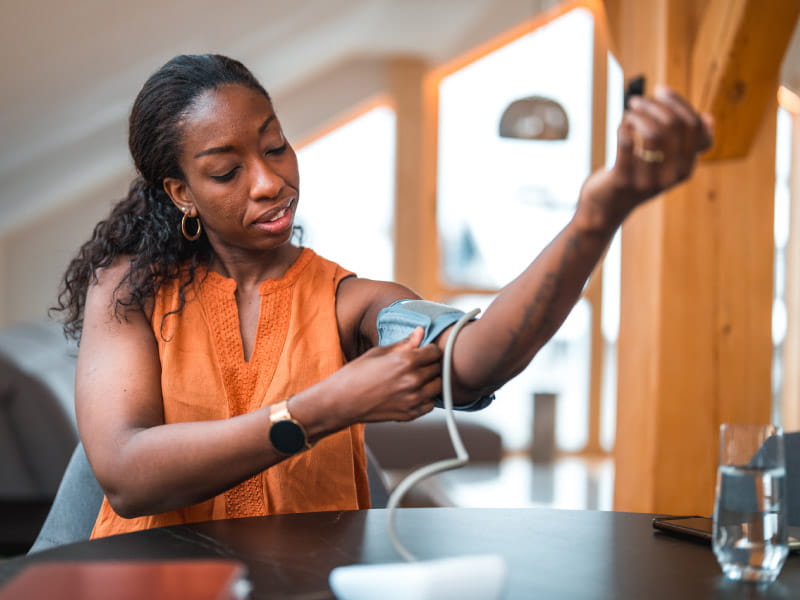
Black women treated for high blood pressure in their 30s and 40s may face a substantially higher risk for having a stroke than their peers without a history of high blood pressure treatment, new research suggests.
The findings showed Black women under 35 who were treated for high blood pressure, also known as hypertension, had triple the risk of having a stroke, and those who developed the condition before age 45 had double the risk.
The findings, which will be presented next week at the American Stroke Association’s International Stroke Conference in Phoenix, are considered preliminary until full results are published in a peer-reviewed journal.
“This research was motivated by the glaring disparity I have seen in my own practice,” lead researcher Dr. Hugo J. Aparicio said in a news release. He is an associate professor of neurology at Boston University Chobanian & Avedisian School of Medicine. “Strokes are occurring at younger ages among my patients who identify as Black and among women. Early-onset stroke, particularly at midlife, is even more tragic because these patients often have families or are caretakers for sick family members.”
Stroke at a younger age also “is associated with an increased risk of dying, as well as a burden of physical disability that creates many problems for stroke survivors and their families,” he said.
Hypertension rates among Black adults in the U.S. are among the highest in the world, according to American Heart Association statistics. Roughly 58% of Black women in the U.S. have high blood pressure, compared to 43% of white women, 38% of Asian women and 35% of Hispanic women.
The new analysis used self-reported data from the Black Women’s Health Study, which enrolled 59,000 Black women across the U.S. in 1995. During up to 23 years of follow-up, 3.2% of participants had a stroke.
Black women who started treatment for high blood pressure between ages 24 and 34 were three times more likely to have a stroke than those with no history of hypertension. Those treated before age 45 had more than double the risk of stroke. If treatment started between 45 and 64 years old, the increased risk of stroke was 69%.
“We expected to see an association between having high blood pressure at a younger age and having a stroke during midlife and later life,” Aparicio said. “However, we were surprised and concerned to see the magnitude of the relationship, especially for women who were taking antihypertension medications before age 35.”
He said the findings were especially striking because the researchers had accounted for important factors that could have affected the results. These included smoking, body weight, diabetes status and neighborhood socioeconomic status. Researchers also adjusted for people living in certain regions of the U.S. where stroke is more common and where stroke mortality is higher, mainly clustered in the “stroke belt” that includes the Southeast area.
Many factors may contribute to the early development of high blood pressure in Black women, Dr. Michelle A. Albert said in the release. Albert, who was not involved in the research, is the Walter A. Haas-Lucie Stern Endowed Chair in Cardiology and a professor of medicine at the University of California, San Francisco.
“An understudied component is the cumulative impact of multiple psychosocial stressors that likely disproportionately affect Black women compared to women from other racial and ethnic groups regardless of socioeconomic status,” Albert said. “The impact of these stressors also likely will affect the ability of Black women to receive and maintain holistic care.”
Aparicio said he hopes health care professionals pay more attention to high blood pressure screening and treatment for Black women over their entire lives. “Health care policy changes are needed so that primary prevention is promoted and funded because by the time a Black woman has a stroke at middle age, it is often too late,” he said.








